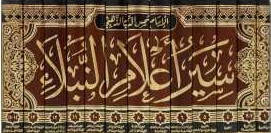In The Name of Allaah, The Most Merciful, The Bestower of Mercy.
Imaam Ibnul Qayyim [rahimahullaah] said:
Allaah [The Most High] said:
فَٱذۡكُرُونِىٓ أَذۡكُرۡكُمۡ وَٱشۡڪُرُواْ لِى وَلَا تَكۡفُرُونِ
Therefore, remember Me (by praying, glorifying, etc.). I will remember you, and be grateful to Me (for My countless Favours on you) and never be ungrateful to Me. [2:152]
The intent behind Dhikr is not merely to remember [Allaah] with one’s tongue, rather it is remembrance with the heart and the tongue. Remembrance of Allaah includes remembering Him by His Names and Attributes, His commandments, His prohibitions and His speech. This necessitates that a person should have knowledge and awareness of Allaah [Ref 1], belief in Allaah, belief in Allaah’s Perfect and Lofty Attributes, as well as [constantly] praising Allaah with various types of praise [i.e. based on what Allaah has legislated in the authentic texts of the Sharee’ah and not by way of bidah]. And this cannot be accomplished except through Tawheed [i.e. singling Allaah out in His Lordship, Names and Attributes, and devote all acts of worship to Allaah alone]. True Remembrance of Allaah necessitates all of this, as well as remembering the blessings and favours, which Allaah has bestowed upon His creatures and His kindness towards them.
As for Shukr [i.e. to be grateful or thankful to Allaah], it is to act in obedience to Allaah and seeking to draw close to Him through those apparent [actions of the limbs] and [deeds of the heart] that are beloved to Him. The religion is based on these two – remembrance of Allaah, which necessitates having knowledge and awareness of Allaah, and being grateful to Him, which necessitates obedience to Him through acts of worship and [refraining from disobedience]. This is the purpose behind the creation of the Jinn, mankind, the heavens and the earth. It is the reason for which reward and punishment are determined; [the reason for which] Allaah revealed the Books and sent the Messengers. It is the truth for which the heavens, the earth and what is between them were created, and what is in opposition to it is falsehood, such as the assumption held by the enemies of Allaah that there is no purpose behind the creation [free is Allaah from what they attribute to Him]. Allaah [The Most High] said:
وَمَا خَلَقۡنَا ٱلسَّمَآءَ وَٱلۡأَرۡضَ وَمَا بَيۡنَہُمَا بَـٰطِلاً۬ۚ ذَٲلِكَ ظَنُّ ٱلَّذِينَ كَفَرُواْۚ
And We created not the heaven and the earth and all that is between them without purpose! That is the assumption of those who disbelieve! [38:27]
Allaah [The Most High] said:
وَمَا خَلَقۡنَا ٱلسَّمَـٰوَٲتِ وَٱلۡأَرۡضَ وَمَا بَيۡنَہُمَا لَـٰعِبِينَ
مَا خَلَقۡنَـٰهُمَآ إِلَّا بِٱلۡحَقِّ
And We created not the heavens and the earth, and all that is between them, for mere play; We created them not except with truth (i.e. to examine and test those who are obedient and those who are disobedient and then reward the obedient ones and punish the disobedient ones)…[44:38-39]
Allaah [The Most High] said:
وَمَا خَلَقۡنَا ٱلسَّمَـٰوَٲتِ وَٱلۡأَرۡضَ وَمَا بَيۡنَہُمَآ إِلَّا بِٱلۡحَقِّۗ وَإِنَّ ٱلسَّاعَةَ لَأَتِيَةٌ۬ۖ
And We created not the heavens and the earth and all that is between them except with truth, and the Hour is surely coming…[15:85]
Allaah [The Most High] said:
مَا خَلَقَ ٱللَّهُ ذَٲلِكَ إِلَّا بِٱلۡحَقِّۚ
Allah did not create this but in truth. [10:5]
Allaah [The Most High] said:
أَيَحۡسَبُ ٱلۡإِنسَـٰنُ أَن يُتۡرَكَ سُدًى
Does man think that he will be left Suda [neglected without being punished or rewarded for the obligatory duties enjoined by his Lord (Allah) on him]? [75:36]
Allaah [The Most High] said:
أَفَحَسِبۡتُمۡ أَنَّمَا خَلَقۡنَـٰكُمۡ عَبَثً۬ا وَأَنَّكُمۡ إِلَيۡنَا لَا تُرۡجَعُونَ
“Did you think that We had created you in play (without any purpose), and that you would not be brought back to Us?”[23:115]
Allaah [The Most High] said:
وَمَا خَلَقۡتُ ٱلۡجِنَّ وَٱلۡإِنسَ إِلَّا لِيَعۡبُدُونِ
And I (Allah) created not the jinns and humans except they should worship Me (Alone). [51:56]
Allaah [The Most High] said:
ٱللَّهُ ٱلَّذِى خَلَقَ سَبۡعَ سَمَـٰوَٲتٍ۬ وَمِنَ ٱلۡأَرۡضِ مِثۡلَهُنَّ يَتَنَزَّلُ ٱلۡأَمۡرُ بَيۡنَہُنَّ لِتَعۡلَمُوٓاْ أَنَّ ٱللَّهَ عَلَىٰ كُلِّ شَىۡءٍ۬ قَدِيرٌ۬ وَأَنَّ ٱللَّهَ قَدۡ أَحَاطَ بِكُلِّ شَىۡءٍ عِلۡمَۢا
It is Allah Who has created seven heavens and of the earth the like thereof (i.e. seven). His Command descends between them (heavens and earth), that you may know that Allah has power over all things, and that Allah surrounds (comprehends) all things in (His) Knowledge. [65:12]
Allaah [The Most High] said:
جَعَلَ ٱللَّهُ ٱلۡكَعۡبَةَ ٱلۡبَيۡتَ ٱلۡحَرَامَ قِيَـٰمً۬ا لِّلنَّاسِ وَٱلشَّہۡرَ ٱلۡحَرَامَ وَٱلۡهَدۡىَ وَٱلۡقَلَـٰٓٮِٕدَۚ ذَٲلِكَ لِتَعۡلَمُوٓاْ أَنَّ ٱللَّهَ يَعۡلَمُ مَا فِى ٱلسَّمَـٰوَٲتِ وَمَا فِى ٱلۡأَرۡضِ وَأَنَّ ٱللَّهَ بِكُلِّ شَىۡءٍ عَلِيمٌ
Allah has made the Ka’bah, the Sacred House, an asylum of security and Hajj and ‘Umrah (pilgrimage) for mankind, and also the Sacred Month and the animals of offerings and the garlanded (people or animals, etc. marked with the garlands on their necks made from the outer part of the stem of the Makkah trees for their security), that you may know that Allah has knowledge of all that is in the heavens and all that is in the earth, and that Allah is the All-Knower of each and everything. [5:97]
Therefore, based on what has [already] been mentioned it has been established that the purpose behind the creation and command is so that Allaah is remembered and thanked. Allaah is to be remembered and not forgotten, and He should be thanked and one should not be ungrateful to Him. Allaah [Glorified be He and free is He from all imperfections] remembers the one who remembers Him, and He is Ready to appreciate good deeds and to recompense the one who is grateful to Him. Remembrance of Allaah is the reason Allaah remembers the one who does so. [Ref 2] And being grateful to Allaah is the reason behind which a person is given an increase in blessings and favours. [Ref 3]
Remembrance of Allaah is to be carried out with the heart and tongue; gratefulness is to be carried out with one’s heart- out of love for Allaah and constantly turning to Him in repentance and obedience with true faith [Islamic Monotheism]. Extolling and praising Him is to be carried out with one’s tongue and being obedient to Him [by performing acts of obedience]. [An Excerpt from ‘Al-Fawaa’id’ page 192-194. slightly paraphrased]
Ref 1: Knowledge and Awareness of Allaah: Shaikh Uthaymeen [rahimahullaah] said, ‘’ Marifatullaah” – Knowledge and awareness of Allaah, the Mighty and Majestic, with the heart, with such knowledge and awareness that it makes the person accept whatever He has prescribed and laid down, and causes him to submit to that, and to judge by the Prescribed Laws (Sharee’ah) which His Messenger Muhammad came with. The servant increases in knowledge and awareness of His Lord by considering the clear signs pertaining to the deen found in the book of Allaah, the Mighty and Majestic, and in the Sunnah of His Messenger, and also by considering the signs which Allaah has provided for us in the creation. So whenever a person examines and considers these signs he will increase in his knowledge and awareness of His creator and His God, who alone has the right to all his worship. Allaah, the Mighty and Majestic, says “And on the earth there are signs for those with certain belief, and also in your own selves. Will you not then consider?” [Soorah adh Dhaariyaat: 20-21] [Translated by Ustaadh Abu Talhah Dawud Burbank (may Allaah grant him and his wife abundant mercy…Aameen)]
[Ref 2]: [فَٱذۡكُرُونِىٓ أَذۡكُرۡكُمۡ وَٱشۡڪُرُواْ لِى وَلَا تَكۡفُرُونِ – Therefore, remember Me (by praying, glorifying, etc.). I will remember you, and be grateful to Me (for My countless Favours on you) and never be ungrateful to Me]: Ibn Abbaas and Ibn Jubayr said that this Aayah means, ”Remember Me by obeying Me and I [Allaah] will remember you by granting you My Maghfirah [Ref: A]
Al-Maghfirah: It necessitates that Allaah will protect you from the evil consequences of your sins, accept [your deeds, repentance etc], grant you His pleasure and favours, show you kindness and generosity etc. [Ref: B]
[And be grateful to Me (for My countless Favours on you) and never be ungrateful to Me]: Imaam Ibnul Qayyim said, ”And being grateful to Allaah is the reason behind which a person is given an increase in blessings and favours.” [Ref C]
Question: What are some of the evil consequences if a person persists upon disobedience, whilst he or she receives more blessings and favours from Allaah?
Answer:
Allaah [The Most High] said:
وَالَّذِينَ كَذَّبُوا بِآيَاتِنَا سَنَسْتَدْرِجُهُم مِّنْ حَيْثُ لَا يَعْلَمُونَ
وَأُمْلِي لَهُمْ ۚ إِنَّ كَيْدِي مَتِينٌ
Those who reject Our Ayat (proofs, evidences, verses, lessons, signs, revelations, etc.), We shall gradually seize them with punishment in ways they perceive not. And I respite them; certainly My Plan is strong. [7:182-183]
[سَنَسْتَدْرِجُهُم – We shall gradually seize them with punishment] – by granting them plentiful provision and respite until they think that they will neither be taken to task for their disobedience nor punished, so they increase in disbelief and transgression, and evil upon evil. And through this their punishment is increased and multiplied, so they harm themselves in ways they perceive not. This is why Allaah said: [إِنَّ كَيْدِي مَتِينٌ -certainly My Plan is strong] [End of Quote] [Ref D]
————————————————————————————————————————————
[Ref A: Zaadul Maseer Fee Ilmit-Tafseer’by Imaam Ibnul Jawzi. Publisher: Daar Ibn Hazm. 1st Edition 1424AH (2002)]
[Ref B: Majmoo Al-Fataawaa 14/140]
[Ref C: Al-Fawaa’id’ page 192-194]
[Ref D: An Excerpt from Tayseer al-Kareem Ar-Rahmaan Fee Tafseer kalaam al-Mannaan’ by Imaam Sadi [rahimahullaah]. slightly paraphrased]





